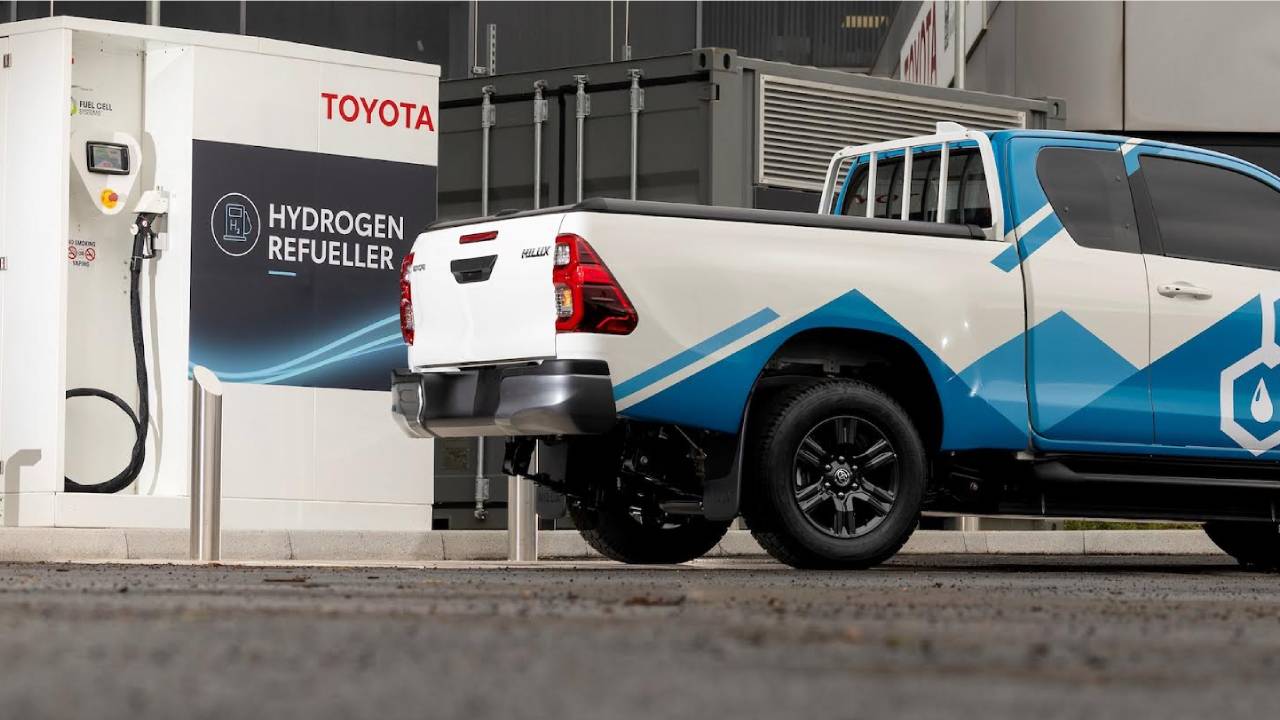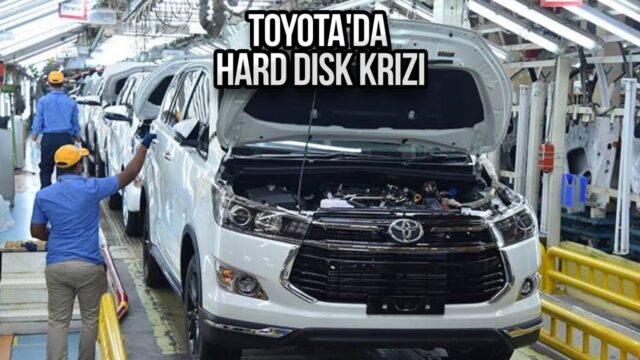Toyota has left behind another important milestone by introducing the hydrogen fuel cell Hilux prototype in line with its carbon neutral society goal. Toyota continues to develop different power unit solutions with its versatile strategy to achieve carbon-free mobility.
In this context, it offers full hybrid, plug-in hybrid, full electric and hydrogen fuel cell vehicles according to the needs of different users and regions around the world. Producing innovative solutions to reduce carbon emissions as soon as possible, Toyota developed the fuel cell prototype of Hilux for this purpose.
Hilux will not compromise on its durability with its hydrogen power unit!
Preparing to break new ground, the hydrogen fuel cell Hilux was demonstrated at the Toyota UK facility, led by Toyota, supported by UK Government funding, and with consortium partners including engineering companies such as Ricardo, ETL, D2H and Thatcham Research. Hilux, a global Toyota icon with its extraordinary durability and reliability, aims to maintain these qualities with its fuel cell zero-emission power unit.
Hilux’s power unit is based on the fuel cell of the Toyota Mirai, which has been produced commercially for about 10 years and has proven itself. Only pure water comes out of the exhaust of the zero-emission vehicle while driving. Hydrogen is stored in three high-pressure fuel tanks.
Thus, the prototype gives the Hilux a range of more than 600 kilometers, which is higher than what battery-powered fully electric systems can provide. The electricity produced by the fuel cell is stored in the hybrid battery, and the battery is positioned in the rear loading area so as not to affect the cabin space.
The first vehicle in the project, which started in 2022, was completed five weeks ago and the first 10 Hiluxes are planned to be produced by the end of this year. These prototype vehicles will undergo extensive safety, dynamic performance, functionality and durability testing to meet the high standards of a production model.

Along with these tests, the consortium including Toyota will continue its research to use fuel cell vehicles and hydrogen systems in different areas. Ricardo, a global strategic engineering and environmental consultancy company that plays a key role in the project, will carry out comprehensive tests of the vehicle in the coming months before the decision on a potential production model to be introduced after 2025.

